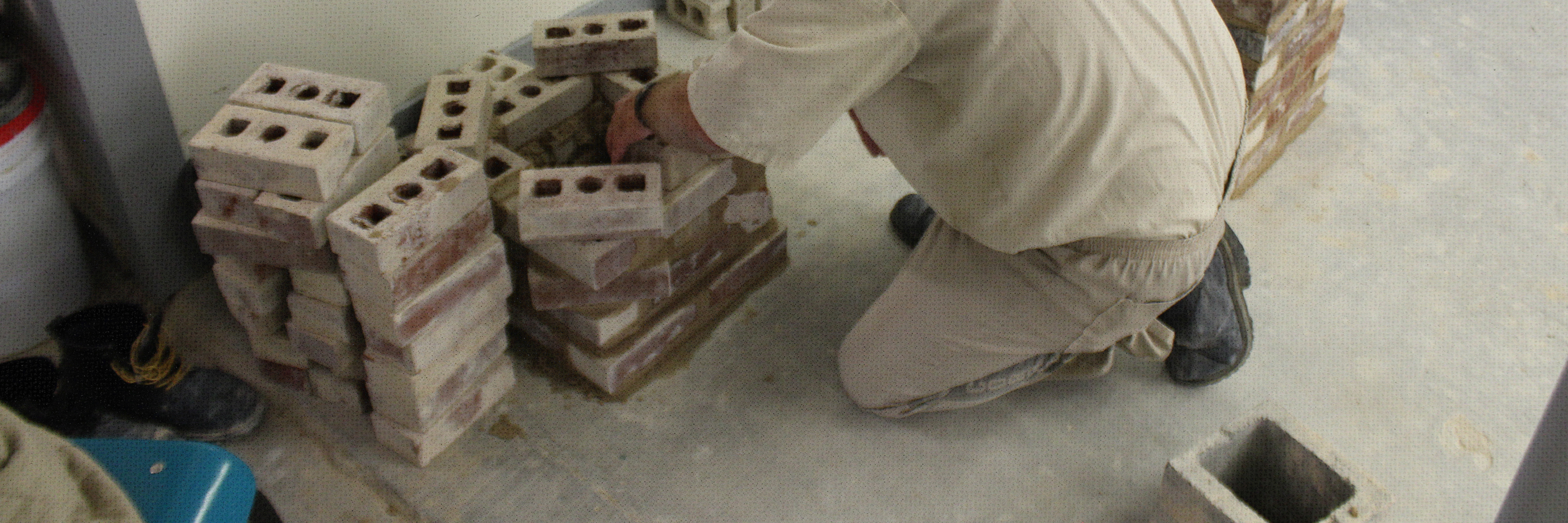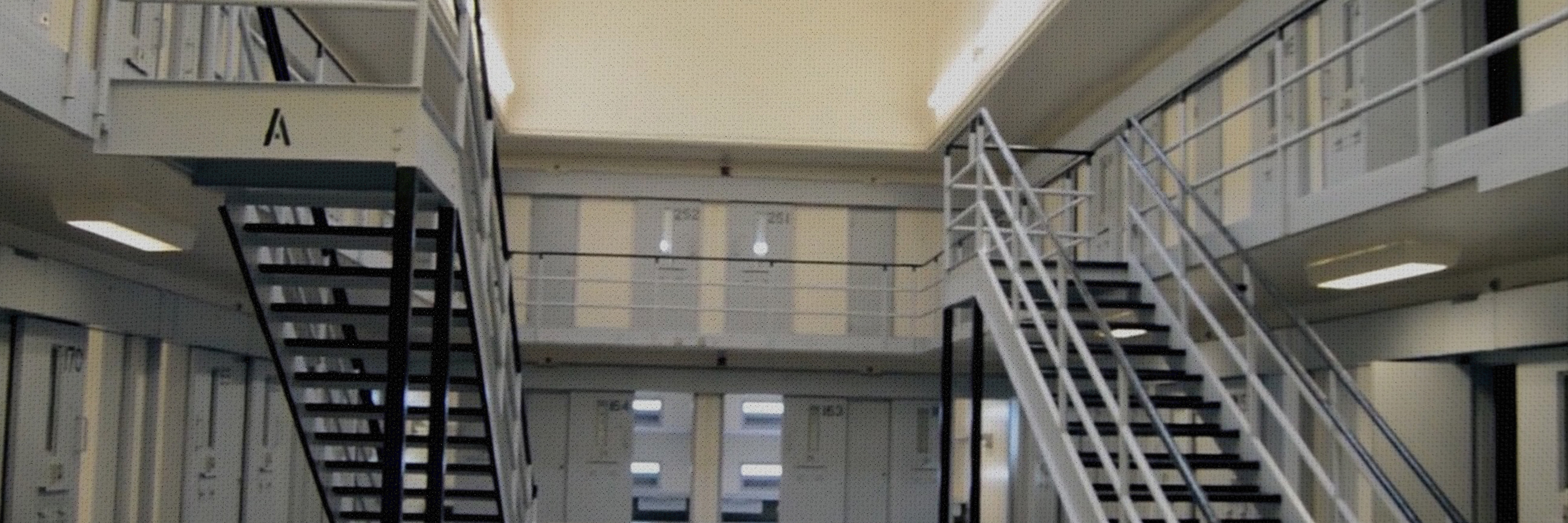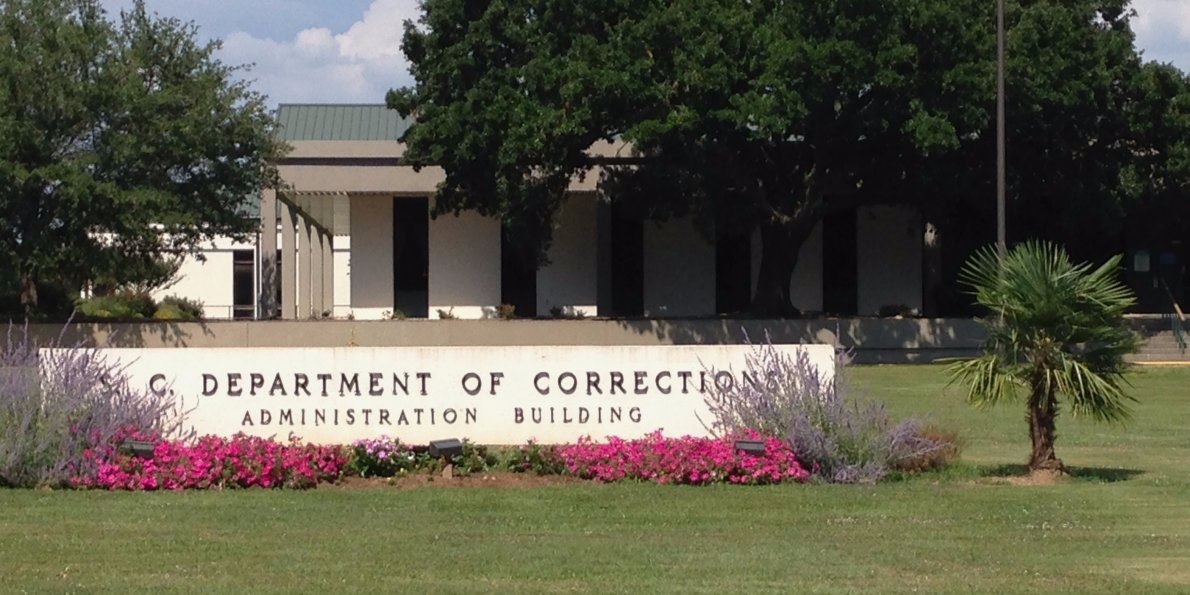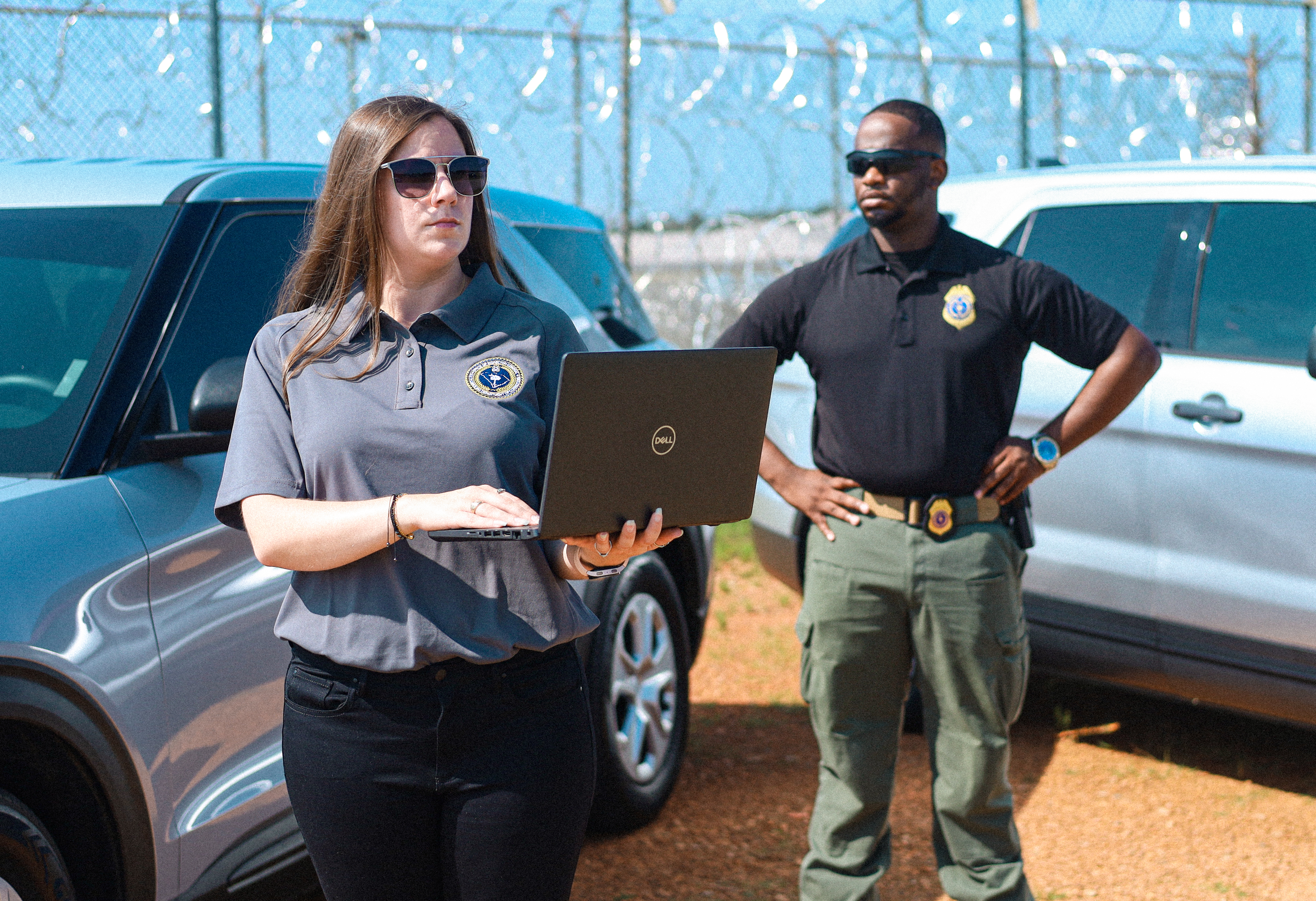The Office of Programs, Reentry and Rehabilitative Services (PRRS) provides numerous opportunities to assist inmates in all facets of rehabilitation. Inmates can learn new job skills, obtain their GED, earn vocational certificates, learn about how crimes affect victims, and complete their college education.
The South Carolina Department of Corrections Office of Programs, Reentry, and Rehabilitative Services through sound research will implement “Evidence-Based Programming,” that will be considered a “best practice” strategy for community reintegration for incarcerated individuals.
The vision of this office is that all offenders, crime victims and employees will be afforded services that are structured, consistent, and uniform. This office is committed to helping all returning citizens successfully “re-enter” our communities following their incarceration, while supporting crime victims and employees thereby reducing recidivism, improving public safety, and saving the citizens of this state money.
The overall mission of this office will be to appropriately identify and assess the individual and collective “community reintegration” needs of our offenders; initiate appropriate program placement; and provide the most cost-effective services available to the South Carolina Department of Corrections, all while supporting crime victims and promoting staff wellness throughout the corrections process.
The South Carolina Department of Corrections is serious about its commitment to crime victims. What may distinguish the South Carolina Department of Corrections from other corrections-based victim notification programs is that the concept of victim services permeates the entire agency. The victim emphasis is pervasive in all agency decision making and program implementation activities. Visit the Victim Services page for more resources.
Mission Statement
PUSD and SCDC will provide students with relevant academic courses, highly effective career related vocational programs, and necessary life skills to make a positive impact in society.
Vision Statement
Palmetto Unified School District educates and empowers participants to become employable, self-sufficient citizens.
Visit the PUSD Website for more information.

The purpose of this application is to help the South Carolina Department of Corrections (SCDC) track programs that operate within the correctional institutions. The SCDC plans to implement and offer only programs of the highest quality, with trained staff, that are focused on attaining high-level outcomes for offenders.
If you have any questions related to your application, please email SCDCPrograms@doc.sc.gov.
The South Carolina Department of Corrections (SCDC) is committed to providing a range of reentry services that address the specific needs of returning citizens, with the goal of reducing recidivism while supporting a successful return to the community. Prior to release, all institutions will be responsible for ensuring returning citizens have access to reentry preparation.
Planning for a returning citizen's reentry and transition back into the community begins the day they make their first contact with the SCDC and continues throughout their incarceration until their sentence is completed.
The process of preparing individuals for reentry begins 24 months prior to release. The first six (6) months of this time is spent in classes, where provided, that ready returning citizens for job interviews, completing job applications, dressing for success, and additional soft skills training. Necessary credentials, birth certificates, Social Security cards, DMV ID’s, are obtained, as well as benefits for self-sustainability upon release, through SC Thrive. Preparation for placement in transitional housing, if needed, begins. The SC Dept. of Employment and Workforce provides registration for employability services, prior to release, and SCDC staff enroll inmates in the Dept. of Labor’s Work Opportunity Tax Credit program. Each qualifying returning citizens receives a Conditional Certification that is given to employers. The WOTC provides participating businesses with tax incentives for hiring returning citizens.
The last 18 months, prior to release, should be spent working in a Prison Industries position, completion of the GED if needed, in a PUSD Vocational program, or in an SCDC job that provides job skills training.
The reduction of recidivism only occurs when reentry is successful. Programs and Reentry strives to make every returning citizen self-sustaining and successful.
Learn about specific resources using the links below.
SC Second Chance Reentry Resource Guide
Federally qualified health centers (PDF)
Housing Resource List (PDF)
Family Assistance (PDF)
Self-Paced In-Class Education (SPICE) Program is an inmate education and employment initiative. This initiative is a faith-based community partnership between SC Department of Corrections (SCDC), SC Department of Probation, Parole and Pardon Services (SCDPPPS), SC Department of Vocational Rehabilitation, and SC technical colleges. The SPICE program provides meaningful educational opportunities (vocational training, life skill training, spiritual awareness and career readiness training). The SPICE program consists of two components; an institutional component and a community–based supervision component.
The institutional component is operated by SCDC at designated institutional sites throughout the state. SPICE program participants are involved in weekly class training and vocational/educational training from our technical colleges. Each participant must acknowledge that this is a voluntary program and sign a mandatory participation contract agreeing to comply with all SPICE program guidelines. Inmates are required to participate in a SPICE program curriculum consisting of educational, spiritual, social/life skills, vocational, health education and wellness training. The average length of the institutional component is 18 weeks.
The community-based supervision component is operated by SCDPPPS. Participants are involved in vocational training or GED initiative and attend spiritual events (e.g. church). Participants are assigned community/church sponsors and mentors to assist in this transition. Offenders who choose not to participate in spiritual events may opt to participate in approved public works programs or community events with assistance from their sponsor/mentor. Upon completion of the vocational/educational training element, the designated SCDPPS agents will coordinate with community sponsors/mentors and other service agencies to facilitate offender employment.
The SPICE program aims to provide a means for eligible inmates to learn, work and contribute back to their communities upon release.

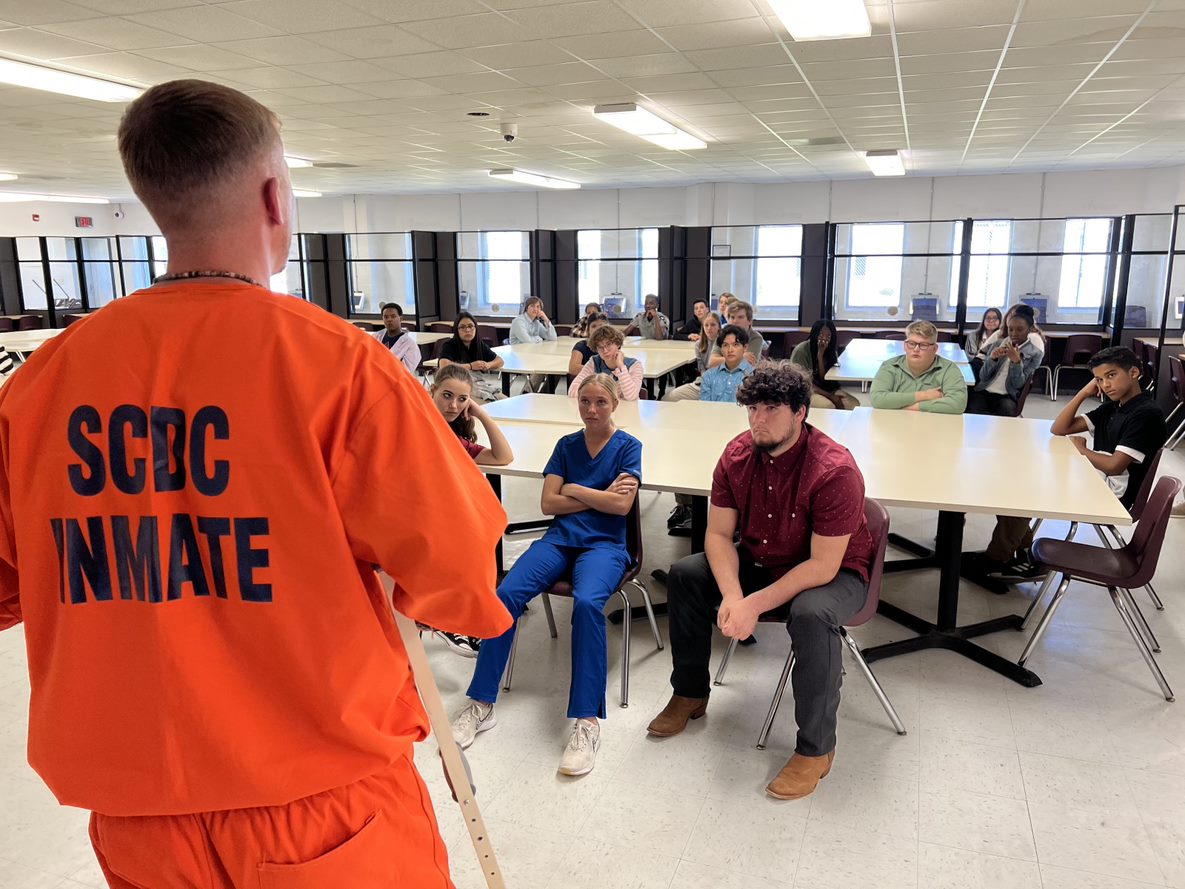
The South Carolina Department of Corrections recognizes the importance of public awareness and crime prevention and currently offers two programs for schools, colleges, law enforcement, churches, civic and business groups throughout South Carolina.
Operation Get Smart was implemented in 1976 and for more than 47 years this program has been an intricate component in our crime prevention efforts. Operation Get Smart consists of a carefully screened team of inmates that travel the state speaking to youth and adults about actions which led to their involvement in crime and the consequences of criminal behavior.
Operation Get Smart consists of a carefully screened team of inmates who travel the state speaking to youth and adults about actions that led to their involvement in crime, and the consequences of criminal behavior. While conducting Operation Get Smart programs, inmates are in uniform and are supervised by a uniformed Correctional Officer. The inmates reinforce the same positive values and life skills that parents and educators encourage, i.e., making good decisions, the consequences of making poor choices, being responsible for their actions, the consequences of carrying weapons, staying away from alcohol and drugs, choosing friends carefully, the difference between positive and negative peer pressure, getting a good education, talking to parents and other responsible adults if they have problems, setting positive goals and striving to reach them, etc.
The Screening Process for an Operation Get Smart Inmate
The screening process for OGS inmate team members is extensive, ensuring they are trustworthy, sincere, and committed to the program's mission. Interested inmates must complete an OGS application, which includes their reasons for desiring to participate in the program, the message they feel they can convey, and other pertinent information about themselves. The inmate’s records are thoroughly screened to confirm that they meet the minimum security requirements, have good, proven institutional adjustment, have no criminal sexual conduct, escape, or kidnapping convictions, or any other condition that would rule them unacceptable. Inmates successfully completing the initial screening are individually interviewed by a Public Awareness Programs staff member. Inmates are also psychologically tested, law enforcement officials in the committing counties are consulted, and registered victims are notified. Inmates can be determined unacceptable during any stage of the screening process. The inmate must then be recommended by State Classification and approved by their respective warden, the Division Director of Operations, and the Division Director of Programs, Reentry, and Rehabilitative Services. The manager of the Public Awareness Program makes the final selection of inmate participants based on the program's need at that time. Inmates selected for OGS program assignments complete an orientation and training process, and their performance and adjustment are constantly evaluated so long as they are assigned to the program. Additionally, OGS inmates are randomly drug tested to guarantee they are drug-free.
Grand Totals From June 1, 2022 to June 30, 2023
Total Number of Engagements: 78
Total Youths Attending: 8,983
Total Adults Attending: 1,222
Total Programs: 65
Total Presentations: 112
Total Miles Driven: 12,317
Contact Us for more information.
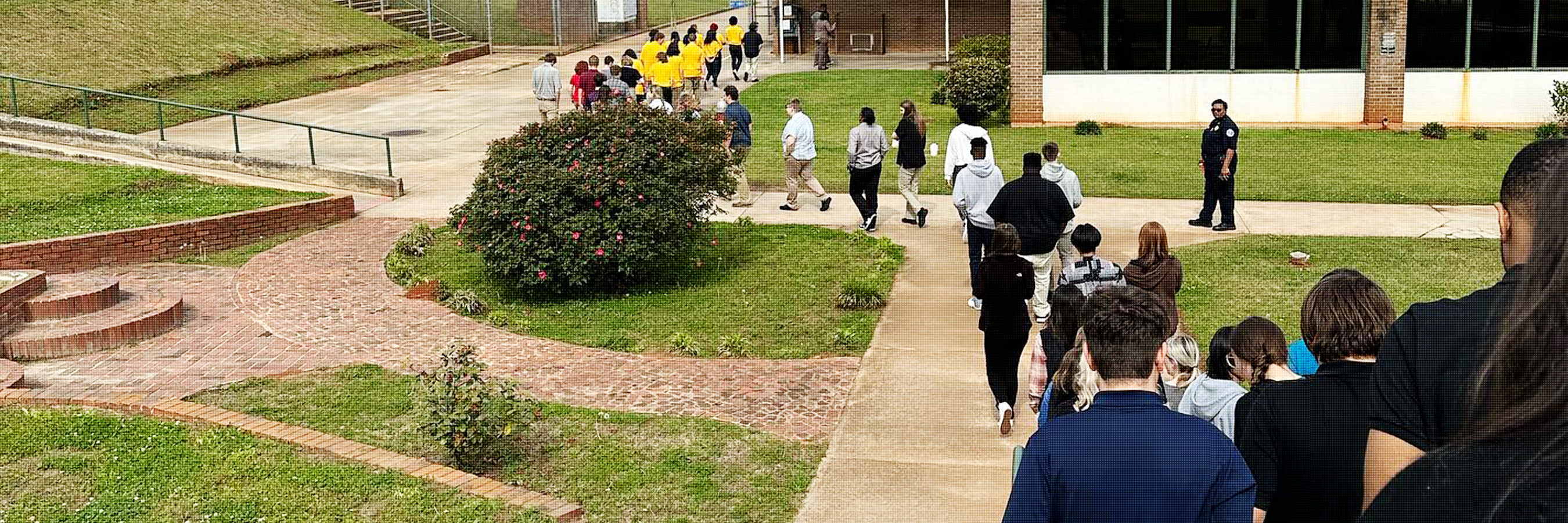
Operation Behind Bars was implemented in 1992 and this program utilizes a more realistic approach with the participants rather than scare tactics. The program is targeted toward young adults, allows each participant to tour a prison facility and then hear inmates give realistic accounts of actions that led to their criminal behavior, the effects of incarceration and day to day prison life. Currently, there are nine prisons located throughout the state that participate in the Operation Behind Bars program.
Operation Behind Bars is targeted toward young adults and allows them to tour a prison facility and then hear inmates give realistic accounts of actions that led to their criminal behavior, the effects of incarceration on themselves and their families as well as the impact of their crime on the victims and the community, and day-to-day life in prison.
This program is offered as a public service to the citizens of South Carolina and is free of charge. To participate, the following guidelines must be met:
- You must be at least 14 years old
- Have a picture ID
- Appropriate attire
- Sign a SCDC Release of Liability form
To schedule participation in the Operation Behind Bars program, please contact the institution located closest to you and discuss tour dates with the institution’s Operation Behind Bars coordinator.
SCDC Operation Behind Bars Institutional Coordinators
| Allendale Correctional Institution Assoc. Warden Yvonne Wilkins-Smith 803-734-0653 or 803-632-2561 |
MacDougall Correctional Institution LT. Kendrick Lyles 803-605-8776 |
| Evans Correctional Institution Assoc. Warden Frederick Hubbard 803-896-4900 or 843-479-4181 |
Perry Correctional Institution Capt. Brent Blakeley and Lt. David Chandler 803-995-4040 or 864-243-4700 |
| Camille Griffin Graham Correctional Institution Lt. Moldavia Canada (primary) Administrative Capt. Anita Stevens, (secondary) 803-896-8590 |
Trenton Correctional Institution Lt. Angela Murrell and Sgt. Reginal Weavers 803-896-3000/3035 or 3073 |
| Kershaw Correctional Institution Lt. Laquencia Hardwell 803-896-3300 or 803-475-5770 |
Wateree River Correctional Institution Assoc. Warden Christine Long 803-896-3446 or 803-432-6191 |
| Leath Correctional Institution Assoc. Warden Michelle Carter 864-321-3560 |
Contact Us for more information.
For more information about the S. C. Department of Corrections crime prevention efforts, contact:
|
Captain Walter Young |
Lieutenant Gloria D. King |

|
Functional Statement Our charge is to provide programs and services to the Agency’s institutions in the areas of Hospice and Palliative Care, Inmate Representative Committees, Pastoral Care Services, Recreational and Wellness Programs, Volunteer Services, and Self-Paced In Class Education (SPICE) |
Goals To provide offenders with the tools and skills that will enable them to return to the community as a well rounded citizen. To evaluate the effectiveness of each discipline as it relates to the needs of the Agency, the community, and the inmate population.. |
What do prison volunteers do?
- Counseling: Individual, group and family.
- Education: Volunteers serve as tutors teaching inmates basic reading and writing skills.
- Mentoring: Volunteers serve as role models by mentoring an inmate who has not received an outside visit in the last year.
- Pre-Release Preparation
- Recreation: Volunteers serve as coaches or referees for numerous team sports. Also, community teams compete against inmate teams in various sports.
- Religious Programs: Volunteers serve as leaders of worship services, study groups and instructional classes. They also participate in religious celebrations.
- Seminars: Volunteers serve as instructors who teach a variety of classes on how to cope with incarceration and how to effectively re-enter into one’s community. For example, topics include anger management, job interviewing skills and parenting skills, etc.
- Staff Assistance: Volunteers help perform clerical and administrative functions.
- Substance Abuse: Volunteers serve as sponsors of Alcoholic Anonymous and Narcotics Anonymous groups that help inmates cope with the problem of addiction.
How can you become a volunteer?
- Contact the Volunteer Coordinator, who is generally the chaplain, at the institution where you wish to provide volunteer services. Please see the chaplain list (PDF) to view contact information for all chaplains.
- Submit an application by mail to the chaplain at the institution where you would like to provide services. Please contact Inmate Services if you have questions about completing the Registered Volunteer Application (PDF) or Guest Volunteer Application (PDF).
- Agree to go through a personal interview.
- Attend an orientation/training session that is appropriate to the services rendered. Registered Volunteers are trained in the rules, regulations and needs of the institution. Guest Volunteers are briefed prior to providing their services.
- Abide by all Agency policies, in particular, the contraband policy, the employee/inmate relationship policy, the hostage policy and the media contact policy.
- Recognize that correctional employees will monitor your contact with inmates.
- Respect all inmates’ privacy.
- Ask questions if you have them.
As a volunteer, you can work with inmates directly by becoming either a Registered (PDF) or Guest Volunteer (PDF). Registered Volunteers commit to scheduled weekly visits, whereas Guest Volunteers perform either a one-time-only service, or specific services up to three times a year. You can also serve inmates indirectly, for example, by assisting the Volunteer Services Branch with projects or an institution with chapel fund-raising efforts, etc.
NOTE: Volunteers must be at least 18 years old or have written parental consent and be accompanied by an adult who is an approved Department of Corrections volunteer. PS-10.04, "Volunteer Services Programs" (PDF)
Questions: Call Inmate Services (803) 896-8858

Mission Statement
Provide for the religious needs of inmates. See our listing of chaplains (PDF).
|
Functional Statement |
Current Projects
|
Five Year Plan
|
|
Headquarters |
Islamic Affairs |

